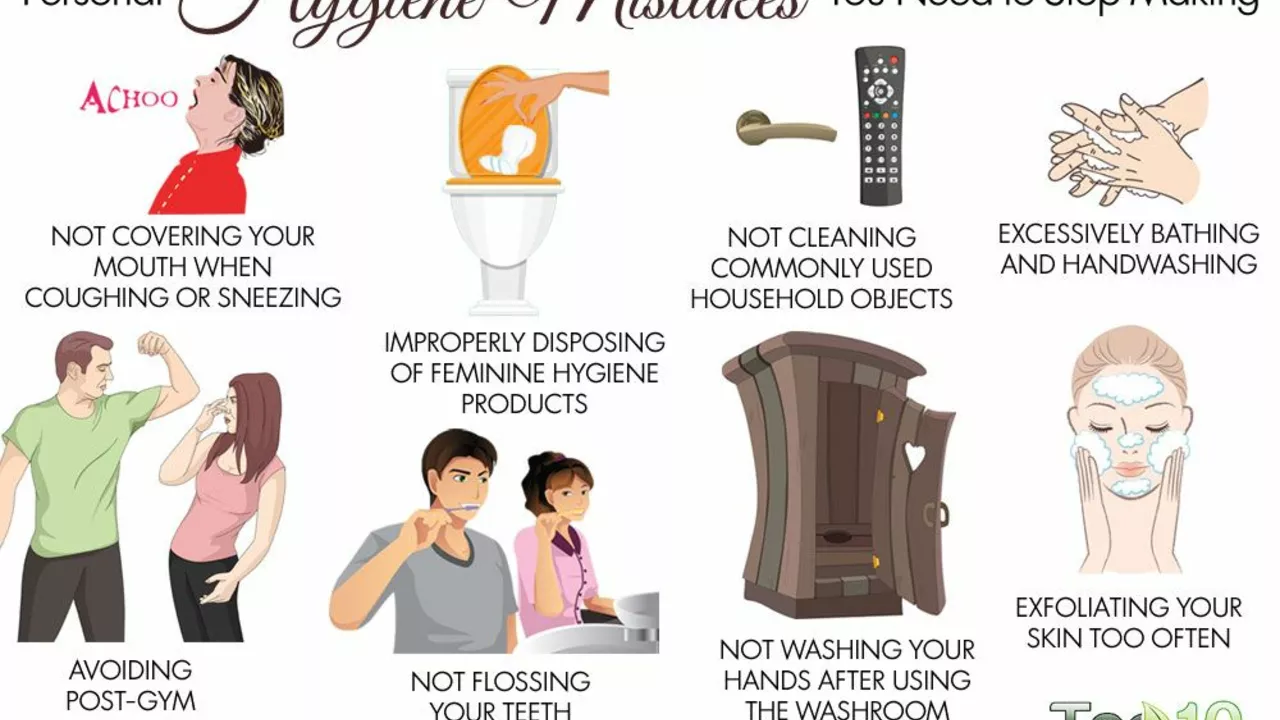Hygiene tips: Practical daily habits that actually work
Good hygiene doesn’t need to be complicated. Small habits, done the right way, cut your risk of infections and keep meds working like they should. Below are clear, useful steps you can start today. No jargon, just things that matter.
Hand and surface hygiene
Wash your hands often and for about 20 seconds. Use soap and water when they’re visibly dirty or after using the restroom, handling food, or touching public surfaces. If soap isn’t available, use an alcohol-based sanitizer with at least 60% alcohol.
Dry hands fully with a clean towel or air dryer. Damp hands pick up germs more easily.
Clean high-touch surfaces regularly: doorknobs, phone screens, light switches, faucet handles. A simple household disinfectant or diluted bleach solution works well. Focus on the surfaces you and your family touch every day.
Medications, wounds, and personal items
Store medications as the label says. Keep pills in their original bottles and away from heat or humidity. A medicine cabinet above the sink might be convenient but often gets damp. Choose a cool, dry shelf instead.
Wash your hands before handling pills, inhalers, or insulin pens. This prevents transferring germs to items you put in your mouth or on your skin.
For wound care, clean cuts with running water first, then soap around the area. Pat dry with a clean cloth and cover minor wounds with a sterile bandage. Change the bandage daily or if it gets wet or dirty. Watch for increased redness, swelling, warmth, or pus—those are signs to see a professional.
Keep personal care items personal. Don’t share toothbrushes, razors, or nail clippers. These small things spread bacteria and viruses fast.
Laundry and bathroom habits matter too. Wash towels, bedsheets, and pillowcases weekly. Use hot water for items that contact wounds or sweat heavily. Replace toothbrushes every three months or after a fever or cold.
When you’re sick, isolate personal dishes and cutlery and wash them in hot, soapy water or the dishwasher. Consider wearing a mask if you must be around others and you’re coughing or sneezing a lot.
Trim nails short and keep them clean. Germs hide under long nails. If you have a job that involves food prep or medical care, consider regular hand inspections and routine moisturizing to prevent cracks in the skin where germs can enter.
Finally, teach kids simple routines. Make washing hands fun with a 20-second song, and show them how to cover coughs with their elbow. Consistent habits beat one-off efforts every time.
These tips cut everyday risk without overcomplicating your life. Pick a few changes that fit your routine and stick with them. Small moves add up to real protection.
Tips for maintaining proper vaginal hygiene to prevent infections
As someone who's always looking out for ways to maintain my overall health, I recently came across some great tips for proper vaginal hygiene to help prevent infections. First, I learned that it's essential to wash the external genital area with mild soap and water daily, but be cautious not to over-cleanse. Secondly, it's crucial to avoid harsh chemicals, fragrances, or dyes in feminine products, as they can cause irritation. Wearing breathable cotton underwear and changing them regularly is another key factor in keeping the area clean and dry. Finally, being mindful of wiping from front to back after using the toilet can greatly reduce the risk of introducing harmful bacteria.
About
Women's Health
Latest Posts


Opioids: How Tolerance, Dependence, and Overdose Really Happen
By Marcel Kornblum Jan 14, 2026

Insurance Coverage of Generic Combinations vs Individual Generics: What You Pay and Why
By Marcel Kornblum Jan 24, 2026

The potential use of dipyridamole in the treatment of multiple sclerosis
By Marcel Kornblum May 6, 2023

